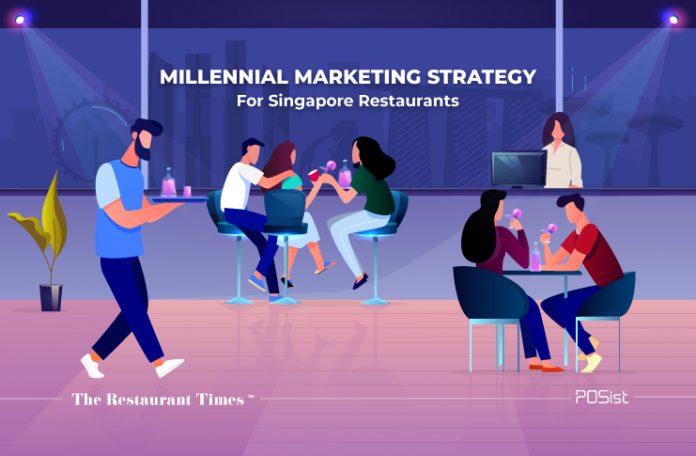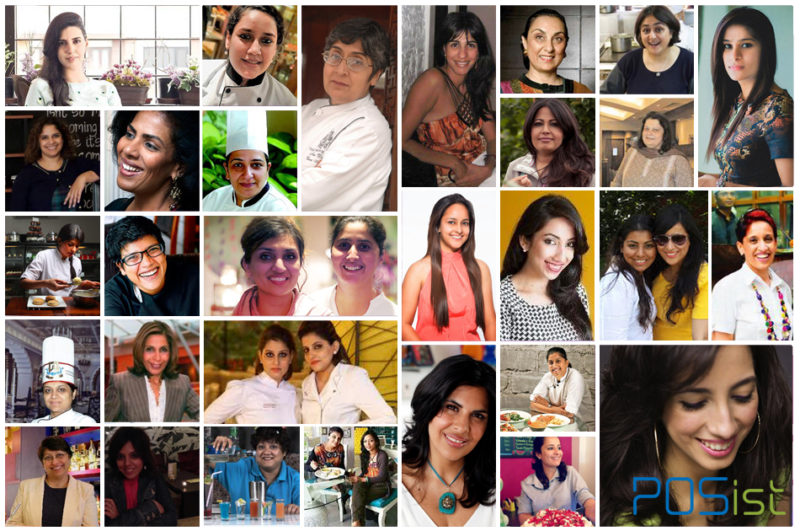Millennials, also known as Gen Y constitute 22 percent of the total population in Singapore. Representing almost one-fourth of Singapore’s population, this generation loves to dine out and share their dining experience on social media. With high disposable incomes and a knack for savoring delicacies, Millennials contribute substantially to a restaurant’s revenue. As they are vital for a restaurant’s success, this demographic must be an integral part of Singapore’s restaurant marketing strategy.
Millennial Marketing Strategy For Singapore Restaurants
With their growing numbers and emerging dining preferences, Millennials are a segment that cannot be ignored by restaurants in Singapore. Here are some tips that will help restaurant operators in Singapore focus their restaurant marketing efforts on millennials.
1. Reach Through Social Media
Singaporean Millennials love taking food photos and sharing them on social media platforms. One out of every ten Millennials learns about a new product or service via social media advertising. Active participation on social media suggests that they are more likely to discover your restaurant brand through social media platforms like Snapchat, Instagram, Facebook. Understand the different functionalities of each social media platform and establish a strong social media presence.
Utilize the advantage of social media with these tips;
- Publish unique yet relevant content in the form of text or imagery
- Promote user-generated content
- Post visually appealing high-quality photos and videos on a regular basis
- Conduct exciting contests and polls such as hashtag challenges to engage customers
- Communicate the new menu additions, upcoming events, and limited period offers creatively
2. Introduce New Trends
Singapore Millennials love to experiment with new cuisines. Their evolving taste preferences also contribute to the changes in Singapore’s food trends. By adopting these trends in their menus, restaurants can broaden their customer base and cater to varying dining needs of customers.
Given below are the rising food trends that Singapore restaurants can introduce in their menus.
- Healthy food: As the trend of healthy food is on a rise in the F&B industry, Millennials and fitness enthusiasts in Singapore are demanding better quality while dining out. They are highly concerned about what’s on their plate and whether the food they are consuming is organically sourced.
- Plant-based foods: An exciting culinary trend of veggie-centric food is gaining popularity amongst the younger generation. Restaurants in Singapore can introduce trending food items such as zucchini spaghetti and cauliflower rice to cater to vegetarian consumers.
- Experiential desserts: Singapore’s millennial foodies are indulging in sweet delights that are devoid of artificial flavor and additives.
- Craft cocktails: Emerging as a trending drink amongst Singaporean diners. Incorporate more local ingredients and create unique fusions to entice the customers
3. Run Loyalty Programs
Millennials like to experiment with different cuisines and restaurant concepts. Restaurants can encourage repeat business and derive customer loyalty by rewarding them with loyalty programs and benefits. Incentivizing customers with visit-based offers or amount-based points is an excellent marketing strategy that has also been adopted by large QSR players like Starbucks.
Integrate the loyalty programs with the restaurant POS system to gain actionable customer insights such as ordering preferences, frequency of orders, etc. which will help in creating customized offers and run targeted marketing campaigns. Encouraging millennials to sign up for loyalty programs is an excellent way of offering them value and driving customer loyalty.
4. Connect With Influencers
Influencer marketing is becoming one of the fastest-growing customer acquisition strategies in the restaurant industry. Once a new concept in Singapore’s digital marketing landscape, influencer marketing is now becoming a mainstay in almost every brand’s marketing strategies.
Singapore Millennials trust digital mediums, look up to influencers, and trust their opinions. A study suggests that even though Millennials hate traditional forms of advertisements, 58% of them would not mind watching ads to support their favorite digital influencers. Therefore, restaurant operators in Singapore need to build a healthy relationship with influencers such as food bloggers, restaurant reviewers, and social media influencers for marketing their restaurant to Millennials and attract them to restaurants.
Engage with food influencers who cater to this demographic group. Also, ensure that the food bloggers you partner with post relevant content that attracts the interests of Millennials and highlights your restaurant’s presence.
5. Enhance The Dine-in Experience
Restaurants offering a combination of culinary delicacies with a quintessential dine-in experience are becoming an ideal choice for Millennials. A study commissioned by Grab and YouGov found that 89% of Singaporean millennials value experience led offerings while dining in. Accordingly, the ride-hailing firm Grab launched the first of its experience-led offerings, Gourmet Tribe, a series of curated gastronomic experiences, such as private dining experiences and interactive food workshops to entice the Millennials.
Creating an experience-based atmosphere will enhance the experience of Millennials and help restaurants in Singapore to stand out from the rest of the competition. Whether it is the unique decor, eclectic menu, live entertainment, or technological advancements, considering upgrading your restaurant space with such elements to turn the dining experience into a memorable one.
Millennials in Singapore are likely to foster relationships with restaurant brands that provide them with good value, personalization, and innovation– all of which elevate their dine-in experience. As Millennials are changing the entire face of marketing, accommodate this demographic group unquestionably in all your restaurant marketing strategies, and reach a wider audience!



















